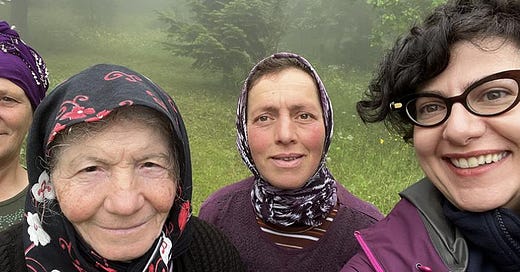Last Chance to Record Archaic Greek Language ‘Heading for Extinction’
A groundbreaking crowdsourcing platform is set to preserve Romeyka, a millennia-old Greek dialect, considered a linguistic treasure trove and a living link to ancient times
The Romeyka language, an ancient Greek dialect on the verge of disappearing, is the focus of a new initiative led by Professor Ioanna Sitaridou of Queens' College and the Faculty of Modern and Medieval Languages and Linguistics. This project aligns with the UN's International Decade of Indigenous Languages (2022-32), which seeks to bring attention to th…
Keep reading with a 7-day free trial
Subscribe to Anthropology.net to keep reading this post and get 7 days of free access to the full post archives.


